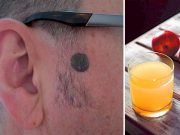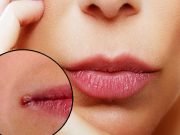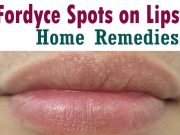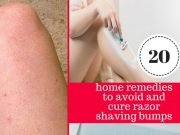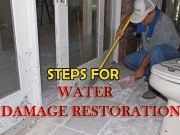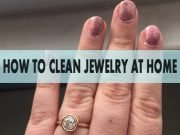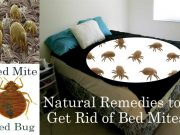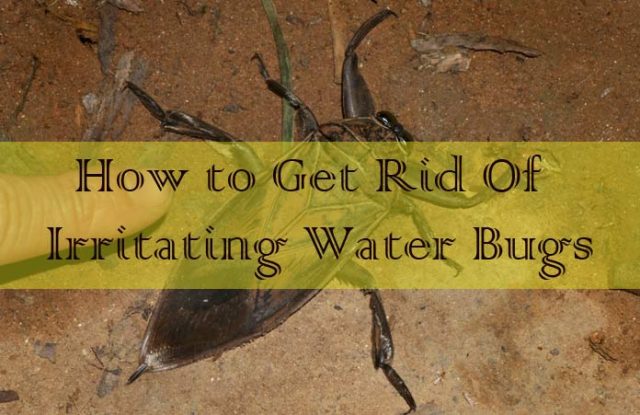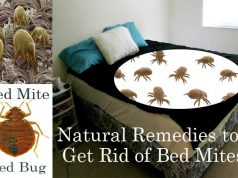Water bugs are roach-like insects that infest the houses, especially near a water source. They mainly come out in the summer time from drains in homes or streets. These sewer roaches are mostly attracted to water and food. So the best way to get rid of them is to not leave food in the open or have an open water source inside or near your house. Taking these insects out of a house they already inhabit, but there are some effective ways to drive them out for good. In this guide, we will outline some simple and effective home remedies to help you get rid of water bugs naturally and quickly.
What causes water bug infestation?
Here is a list of reason why your house has been infested with water bugs:
- True to their name, water bugs are mainly attracted to moist places like an open water source. This is why they are most often found in bathrooms and kitchen. Often times, water bugs are also found in pool and fish pond.
- Decaying vegetation such as rotting wood, leaf etc. is mainly an external factor that can cause water bugs to enter your house.
- Open garbage bins in your house will attract these pests faster than you can imagine. This is why you should always go for trash cans with tight fitting lids.
- Water bugs are attracted to sweet food like syrups and soft drinks. One drop of these and they will get the whiff.
- They also like eating things rich in starch such as the material on the back of a wallpaper, book bindings, paper or clothing.
- If you have pets at your house, you better make sure no pet food is lying around as it can attract these bugs as well.
- Water bugs need a dark place to hide and breed which is why they mostly look for moist, dark and warm areas. Crevices and drains are ideal spots for water bug infestation.
A list of household remedies to ease your pain and help you get rid of water bugs:
1. Vinegar Spray
Vinegar contains anti-bacterial properties that help to kill the bacteria caused by water bugs. But, you will have to use vinegar with the highest concentration for it to work effectively. If you don’t have vinegar with high concentration, then use a greater volume of the same. Vinegar also helps in killing water bugs and prevents them from multiplying. Do this two times a day for greater results.
2. Boric Acid
Boric acid is one of the most effective home remedies for getting rid of water bugs. You need to sprinkle a thin layer of boric acid near their nest to attract the bugs. The acid will be ingested through their legs and antennae when they walk over the powder. You should not sprinkle a thick layer of powder because bugs tend to avoid heavy piles. Take 400-500 grams of boric acid, mix it with 200 ml of water and use a spray can, to sprinkle it over the affected areas.
3. Cooking Oil
Cooking oil is used to effectively kill water bugs. Pour cooking oil onto the bug infected area. With the help of a net, take out the bugs from that area and put them into a bucket with oil and close the lid for a day. The presence of heat, oil and limited oxygen will kill the bugs and stop them from multiplying. Since oil does not mix with water, it will separate the water bugs and they will start floating on the surface of the water.
4. Citronella
Citronella oil is an all-natural insect and animal repellent made from the distilled oils of different varieties of grass. Citronella works by masking scents that are attractive to bugs and insects. Using a spray, apply this oil to the nests and drains in your house. This won’t kill them but will make them stay away from your house.
5. Diatomaceous
Diatomaceous is a natural product which has a direct impact on the outer shell of the bug which acts as their protective layer. Once the protective layer is destroyed, apply diatomaceous in large quantities which will then help in killing the bug. But, before applying this, make sure you cover your face with a mask or a cloth. Moreover, this natural product will prevent any further growth of bugs in the area it is applied to. Sprinkle a small quantity of diatomaceous on the infected area, leave it for a few hours and then wipe off using tap water. Repeat this 2-3 times a week for best result.
Read here – 12 Easy Household Methods to Unclog Drains and Pipes
6. Liquid detergent
If your pool is infested with water bugs, liquid detergent is one of the best ways to help you get rid of them. You need to pour several tbsp. of liquid detergent and let it stay for a few hours till all the bugs die and float to the surface. Remove them using a pool skimmer and drain out the water. It will not harm your pool if used in small quantities. You can also spray this on the perimeter of the pool. By doing this you will prevent the bugs to come out of the water to breathe resulting in them drowning.
7. Hot water
Primary reason for infestation by water bugs is dirt and fungus. Boil water in a utensil and pour the hot water over the bug infested area. You should do this at least 2-3 times a day. Bugs cannot tolerate hot temperature, specifically because their outer shell starts breaking down. If the infestation is more, increase the quantity of water and the number of times you pour it over the area.
8. Alcohol
Alcohol helps in drying out the bugs and their eggs, killing them as a result. Take a spray bottle and pour approximately 400ml of alcohol in it and spray in the affected area. Once the bugs are killed, follow this method again to wipe out any possibility of their eggs hatching. This is one of the easiest home remedies to help you get rid of water bugs.
9. Algaecide
Algaecide is a chemical treatment for pools, fish pond and other water sources that kill algae and other small organisms. Algaecide will help you in killing water bugs as well. Algaecide removes food supply for the bugs and killing them as a result. You should be cautious about the quantity of this chemical to use for the pool. If used in excess, you may end up harming your pool.
10. Cold water
Along with hot water, cold water will also help you in exterminating these bugs. Water bugs cannot tolerate extreme temperature change. So take some chilled water and pour it over the affected area. Repeat this step quite a few times a day. Cold water will also help in preventing the eggs from hatching.
11. Baking soda and powdered sugar
Like boric acid, the mixture of baking soda and powdered sugar spreads through the water bug’s legs and kills them. This is a very effective home remedy to get rid of water bugs. Mix equal amounts of baking soda and powdered sugar and apply it on the affected area. To attract the bugs, sprinkle the mixture on the sides of the affected area as well.
12. Garlic Spray
The natural repellant nature of garlic makes it perfect for killing water bugs. Put in few peeled garlic in a vessel of boiling water. Once the water has boiled, take out the garlic pieces. Take the boiled water, mix it with natural soap and spray it on the affected area. You may have to repeat this process quite a few times to get rid of the bugs completely.
13. Peppermint oil
Menthol present in peppermint oil has a strong smell which repels the bugs and will help you in keeping them away. Peppermint oil can also be used to kill the bugs. Mix water and peppermint oil and spray over the affected area. Repeat this 3-4 times a week for best results.
14. Bay leaves
You might be wondering how a leaf that smells nice can be used to ward off bugs. While we find the smell of bay leaves pleasant, it is not the same for water bugs. They can’t tolerate the smell and hence are repelled by it. Put some bay leaves on the areas where you think bugs enter your home from. You can also put the bay leaves inside a sachet so they don’t get blown off. This will help you keep those water bugs at bay.
15. Catnip leaves
Similar to bay leaves; the water bugs can’t tolerate the smell of catnip leaves. Boil about 30-40 grams of catnip leaves in two cups of water and with the help of a spray can, spray it on the affected areas and the places where you think the water bugs might be coming from.
16. Onion, garlic and pepper spray
Cayenne pepper contains capsaicin, which kill water bugs and onion and garlic act as natural repellents.
17. Traps
You can use baits to trap and kill the water bugs.
Difference between water bugs and cockroaches
People get confused between a water bug and a cockroach. They are very often mixed up for one another though they are very different.
- Water bugs are aquatic insects. They live in water and makes use of surface tension to stay afloat. Cockroaches are adaptable insects. Though they get attracted to warm moist areas, they are not aquatic.
- Cockroaches eat dead animals, plant materials, sweet food etc. The waters prefer to hunt and kill their food, such as tadpoles and small fishes.
- Cockroaches generally tend to be of an orange-brown color whereas water bugs are mostly black in colour or dark brown with paddle-like legs.
- Cockroaches prefer to be in large groups whereas a water bug is a solitary animal. They general are often alone.
- A defense mechanism for a cockroach would be to run and hide. The water bugs also hide and play dead but tend to bite as well.
Precautions to be taken against water bugs:
Following are the precautions that you can take to prevent water bug infestation at your house or in your yard.
- Cleanliness is very important to keep your house free from water bugs.
- Keep your food in the refrigerator or in air tight containers.
- Try to keep the bathroom floors, kitchen slabs and the sinks dry as moisture acts as an invitation these bugs.
- Discard your garbage every day and use trash cans with tight fitting lids.
- Keep on the lookout for cracked pipes and ducts and seal them instantly.
- Clean the kitchen with a disinfectant every night before going to sleep.
- Clean your pool and yard at least 2-3 days a week.
These are the most common and easy home remedies that you can try to get rid of water bugs. However, if the problem still persists, you should call an exterminator for a more aggressive chemical treatment.
You may know also –






